Photos: The Scrumptious Chocolate Falls of Arizona

Grand Falls Arizona
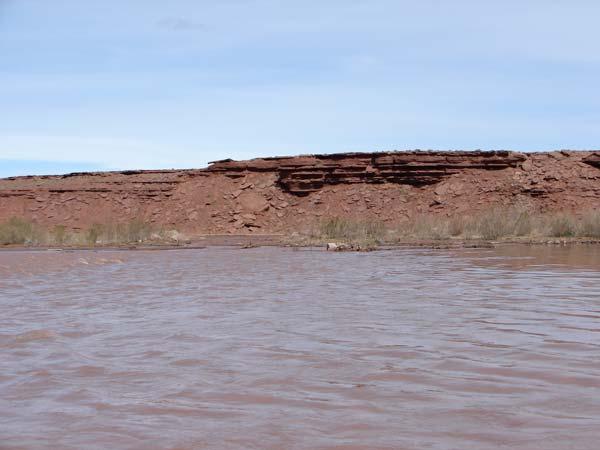
Off the beaten trail not far from Flagstaff, Ariz., is an amazing spectacle known as the Chocolate Falls. Only in the spring, and only in years when there's a good snowpack and a good runoff, the Little Colorado river brings a sediment-laden fury of water to Arizona's Grand Falls, and a dry landscape is transformed into one of Earth's most incredible sights.
Above, the Little Colorado River is a major tributary of the Colorado River that usually runs dry in northern Arizona except during the springtime snow melt.
Grand Falls Arizona
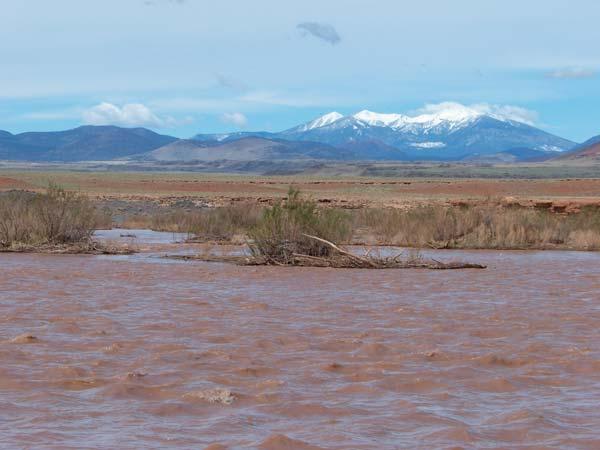
The waters that fill the Little Colorado River each spring have their origin on the slopes of 10,064-foot (3,067-meter) Mount Baldy and the White Mountains of Arizona and New Mexico. From these mountains the water fills the riverbed, and passes through the Painted Desert on its northwest journey to join the Colorado River in the Grand Canyon.
Grand Falls Arizona
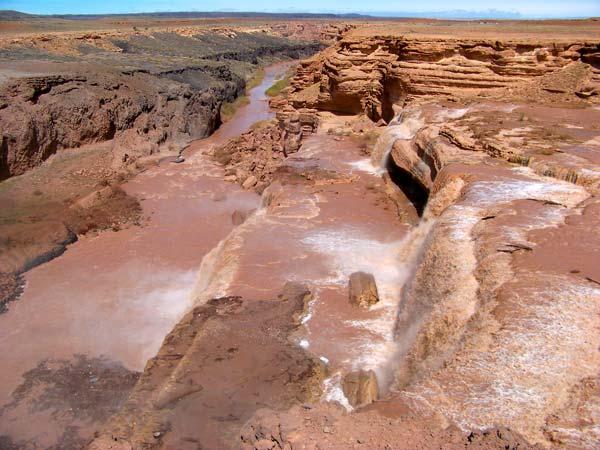
But some 30 miles (48 kilometers) northeast of Flagstaff on the Navajo Indian Reservation, an ancient lava flow from the Merriam Crater filled the 200-foot (60-m) deep Little Colorado River gorge thousands of years ago. After the lava cooled, a natural basalt dam was formed, blocking the original river channel. Seasonal river water would first pool behind the basalt dam while continually seeking a way to escape and rejoin the ancient riverbed.
Grand Falls Arizona
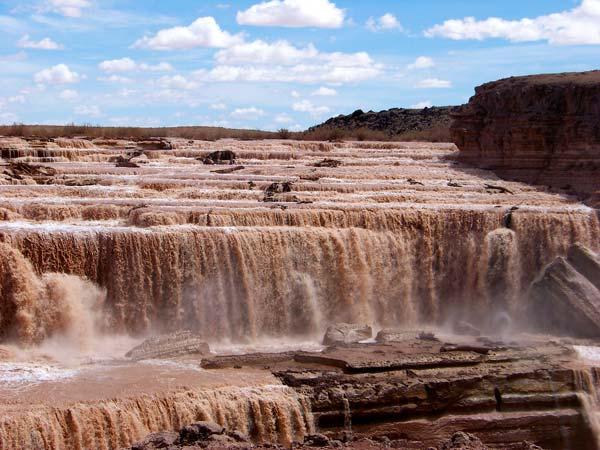
After cascading over a wide spillway of basalt, the water begins its final plunge over the volcanic wall, forming Arizona's Grand Falls. The vertical drop of the Grand Falls is 185 feet (56 m) greater than the drop of Niagara Falls.
Grand Falls Arizona
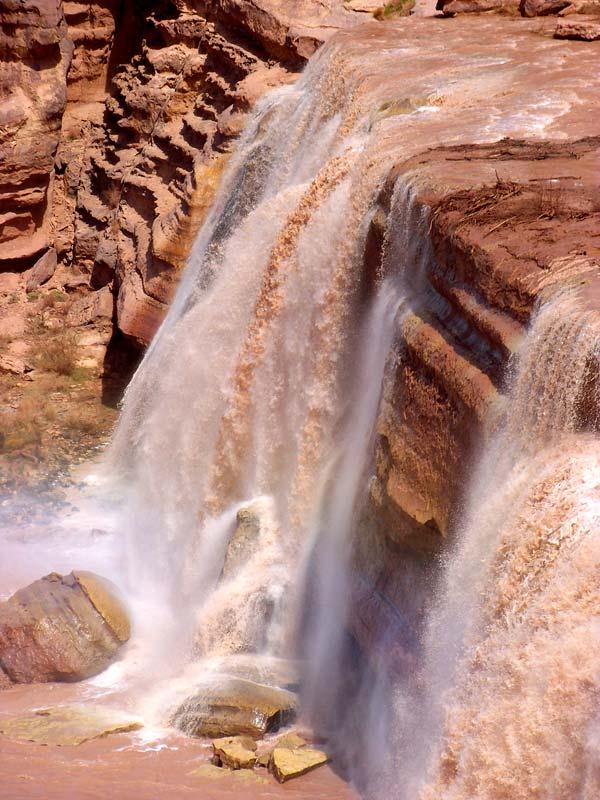
A vivid memory that most visitors take away from the Grand Falls is the unusual color of the falling water.
Grand Falls Arizona
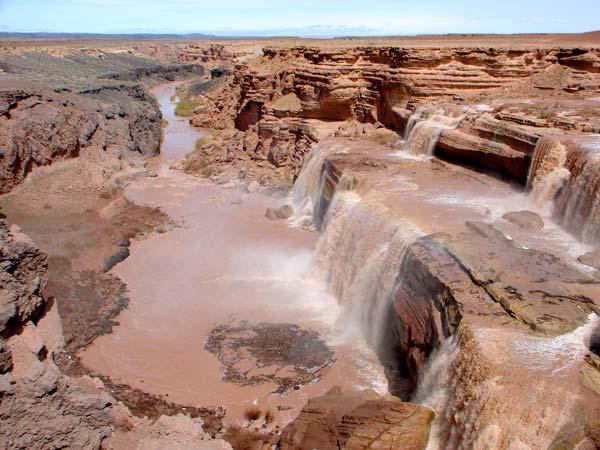
The Little Colorado River by now has passed over 240 miles (386 km) of high-desert lands from its genesis in the White Mountains. Along the way it has gathered tons of sand and clay, carrying it along on its journey toward the Grand Canyon.
Grand Falls Arizona
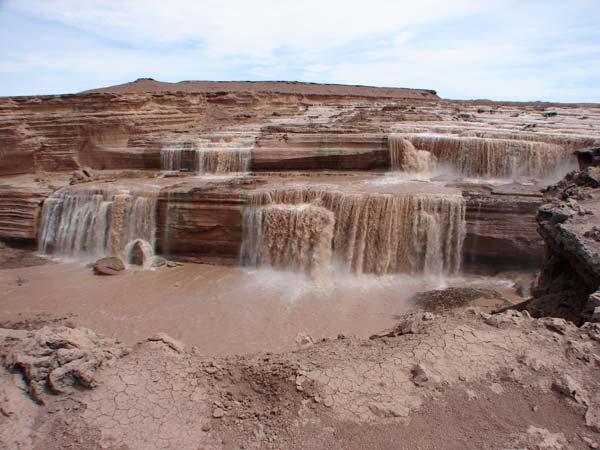
Once the silt-laden water tumbles over the ever-eroding cliffs, the water color is best described as "chocolate." The Chocolate Falls is a second name by which this natural spectacle of the Little Colorado River is often known.
Get the world’s most fascinating discoveries delivered straight to your inbox.
Grand Falls Arizona
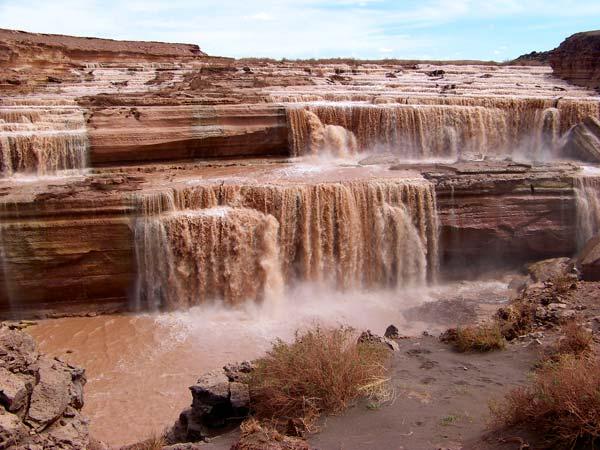
Although the Grand Falls roars during the seasonal snow melt or after an occasional, local summer monsoon thunderstorm, most of the year the roar is silent as the Little Colorado River turns to a trickle or simply disappears.
Grand Falls Arizona
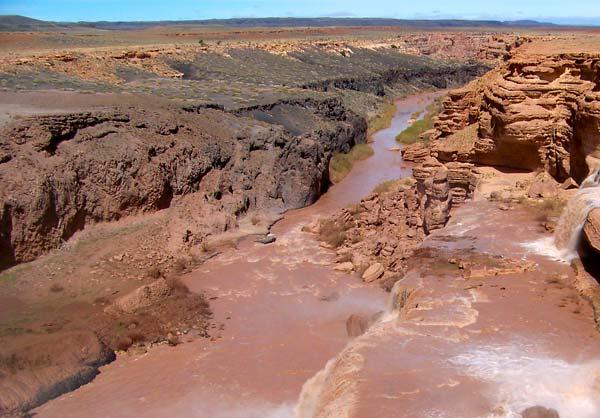
At the base of the great falls, the chocolate frothing waters reenter the original Little Colorado River channel and continue for another 70 miles (113 km) before joining the Colorado River.
Grand Falls Arizona
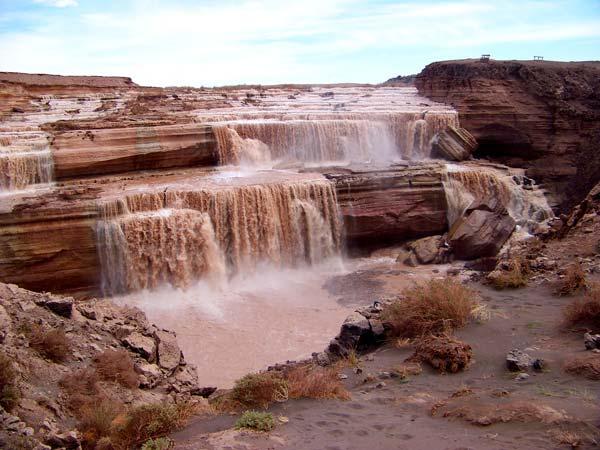
The Grand Falls are only 32 miles (52 km) from Arizona Highway 89A in Flagstaff. All but 8.5 miles (14 km) of the trip is made on excellent, paved roads.
Grand Falls Arizona
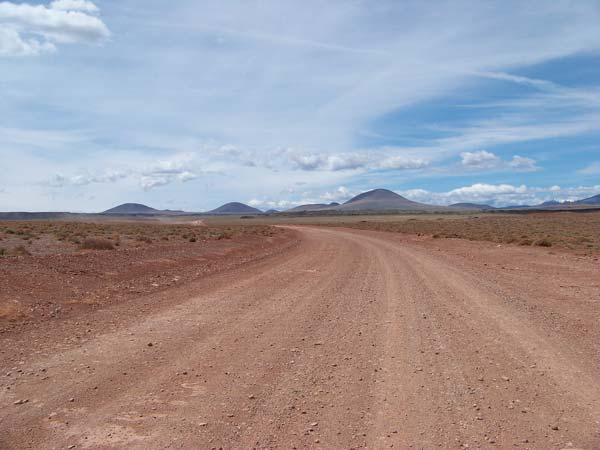
The final 8.5 miles of the journey to the Grand Falls is made on Navajo Road 70. Navajo 70 is a wide, well maintained dirt road that can be traveled in any road-worthy vehicle. The road will lead past many ancient cinder cones including Merriam Crater.


